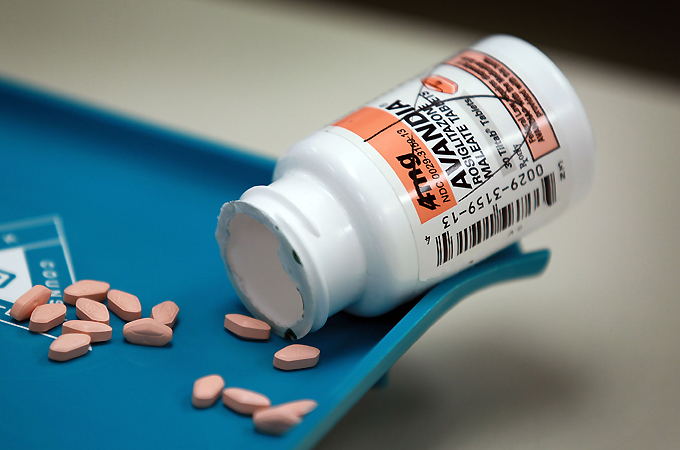Drug company whistleblower wins big
US woman to receive $96m in “biggest whistleblower award ever” after GlaxoSmithKline is fined for selling faulty drugs.

 |
|
Eckard said she was fired in 2003 after repeatedly reporting the problems to the company [GALLO/GETTY] |
Cheryl Eckard, the former global quality assurance manager of GlaxoSmithKline, will receive $96m of a settlement to be paid by the pharmaceutical company to settle allegations that it knowingly manufactured and sold adulterated drugs, federal prosecutors in Massachusetts say.
Carmen Ortiz, the US lawyer involved in the case, announced on Tuesday that the London-based company will pay $150m in criminal fines and $600m in civil penalties related to faulty manufacturing processes at its plant in Cidra, Puerto Rico.
Keep reading
list of 4 itemsThe Alabama town living and dying in the shadow of chemical plants
South Africa’s Ramaphosa signs health bill weeks before election
Gaza lost much more than a hospital when it lost al-Shifa
As a whistle-blower under the federal False Claims Act, Eckard will receive $96m of the settlement paid by the company.
Getnick & Getnick, the New York-based law firm that represented Eckard, believes her award is the biggest US whistleblower award in history.
“This is not something I ever wanted to do, but because of patient safety issues, it was necessary,” Eckard said following news of the settlement.
An investigation into claims against the company began after Eckard went to the Puerto Rico plant in August 2002 to lead a team of scientists and quality experts to correct manufacturing violations cited by the US Food and Drug Administration (FDA).
Cross contamination
She discovered numerous violations, including a contaminated water system and an air system that allowed for cross-contamination between different products being made there.
She reported the problems to her superiors and the company’s compliance department, her lawyers said. Eckard eventually went to the FDA to report the problems and later filed a whistle-blower lawsuit.
Eckard said she was fired in 2003 after repeatedly reporting the problems to the company.
Ortiz said the company allowed several drugs to be adulterated between 2001 and 2005, including Paxil CR, a skin-infection ointment called Bactroban, an anti-nausea drug called Kytril, and a diabetes drug called Avandamet.
He said that no patients appeared to have been harmed by the quality problems at the plant, which included failing to ensure that Bactroban and Kytril were free of contamination from microorganisms and causing Paxil controlled release tablets to split, causing the potential distribution of tablets that did not have any therapeutic effect.
GlaxoSmithKline said in a statement that it regrets operating the plant in a manner that violated good manufacturing practises.
Consumer rights
The $600m civil penalty will be paid to the federal government and the states to cover false claims submitted to the Medicaid programme and other health care programmes.
The agreement between SB Pharmco Puerto Rico Inc, an indirect subsidiary of GlaxoSmithKline that ran the plant, is the fourth-largest amount ever paid by a pharmaceutical company to the government to resolve civil and criminal allegations, Tony West, the assistant attorney general for the civil division at the US department of justice, said.
“At the end of the day, consumers have a right to rely on the representations companies make about the products they sell,” West said.
GlaxoSmithKline executives disclosed a $750m charge to the company’s second-quarter 2010 earnings on July 15 in connection with the agreement.
The company said the plant closed in 2009 due to declining demand for the medicines made there.